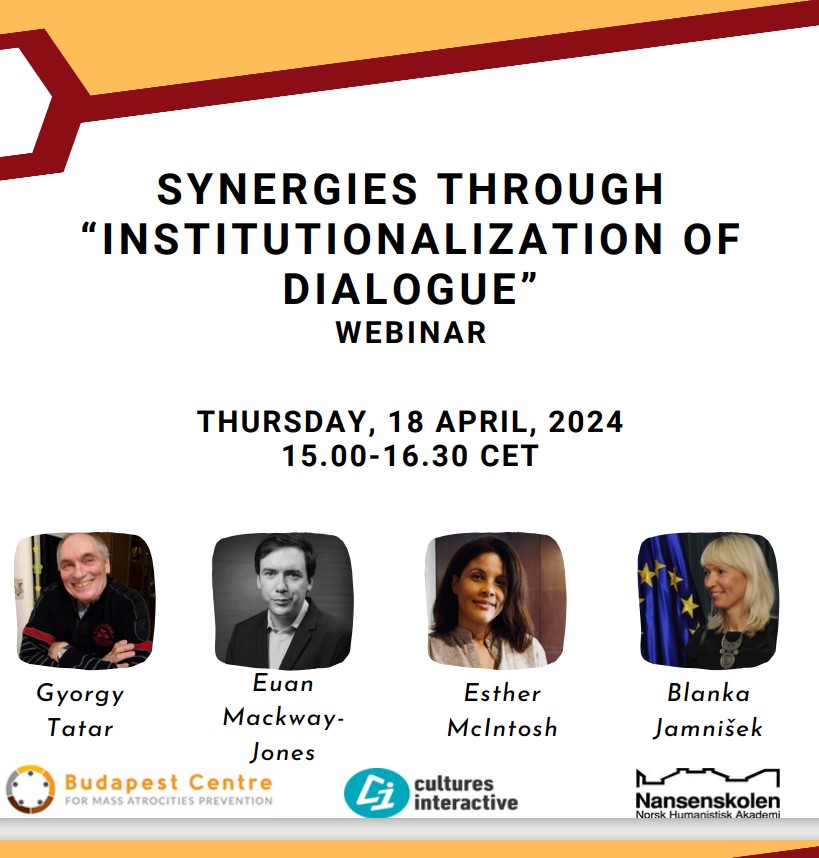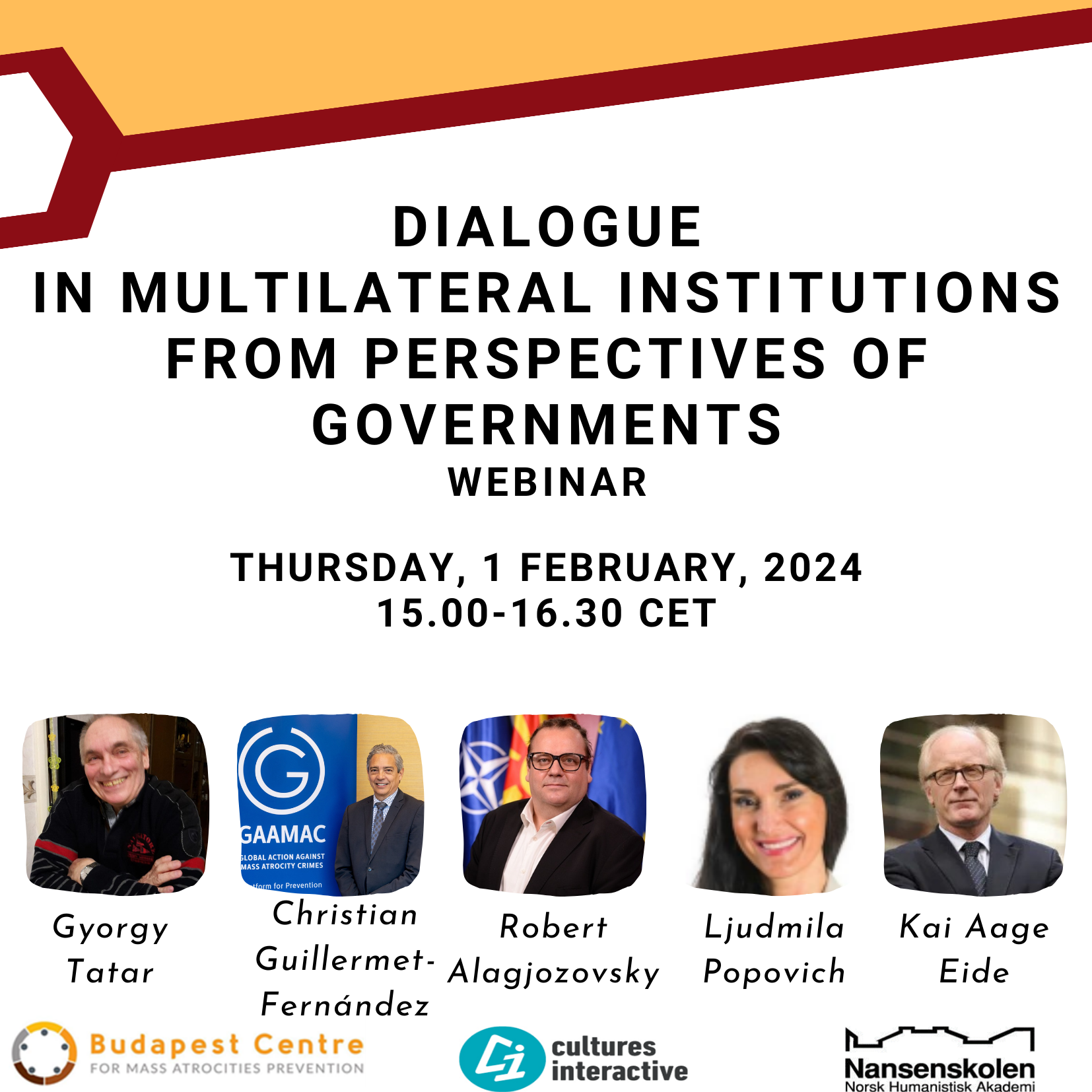- |
- Category: Allience for Dialogue
- |
- Category: Allience for Dialogue
On April 24, 2025, the Budapest Centre for Dialogue and Mass Atrocities Prevention, in partnership with the Nansen Academy and Cultures Interactive, hosted a webinar exploring different ways dialogue can help improve human relations in the context of Russia’s aggression against Ukraine.
- |
- Category: Allience for Dialogue
- |
- Category: Allience for Dialogue
Dear Visitor,
Please read below the petition issued by Steinar Bryn (Nansen Academy), Gyorgy Tatar (Budapest Centre for Dialogue and Mass Atrocities Prevention) and Harald Weilnböck (Cultures Interactive) where we invite you to sign up to it and support the implementation of the Initiative „Institutionalization of Dialogue”.I sincerely hope you will become one of the promoters of the idea!
- |
- Category: Allience for Dialogue
- |
- Category: Allience for Dialogue
Dear Visitor!
The Budapest Centre for Dialogue and Mass Atrocities Prevention, Cultures Interactive (e.V.), NGO in Violence Prevention and Inter-Cultural Dialogue, and the Nansen Academy organized a series of webinars discussing the Initiative “Institutionalization of Dialogue” and established the Core Team of the “Alliance for Dialogue”.- |
- Category: Events
- |
- Category: Events
The fifth piece of the series of webinars on the significance of dialogue took place on 18 April 2024. With the view to help create synergies for the institutionalization of dialogue representatives of the UNESCO, Club de Madrid, and the Government of Slovenia shared their views on implementing concepts and policies where dialogue plays a key role. The initiative “Institutionalization of Dialogue” was also presented.


- |
- Category: Events
- |
- Category: Events
The interview is part of our Initiative for regular and consistent deployment of dialogue in international and national decision-making mechanisms and education. Prominent practitioners share their views and experiences in that context.
Mr. Vollebaek presents concrete examples showing the increased need and significance of dialogue for effectively addressing contemporary security challenges. To learn the details please click here.
- |
- Category: Events
- |
- Category: Events
The fourth piece of the series of webinars on the significance of dialogue in decision-making mechanisms took place on 01 February 2024. Governmental officials shared their experiences on the benefits of dialogue in a multilateral environment.
The record of the webinar can be watched here:
The record of the webinar can be watched here:
- |
- Category: Events
- |
- Category: Events
Kindly find the invitation to our Dialogue in Multilateral Institutions from Perspectives of Governments webinar on 1st (Thursday) February from 15.00-16.30 CET.
During this event senior governmental officials will share their views on how dialogue could support the decisions in multilateral organizations to sustainably address global challenges and respond to risks of mass atrocity crimes.
Please click here to access the invitation!
Please click here to access the registration link! The webinar link will be sent to your email address before the event.
During this event senior governmental officials will share their views on how dialogue could support the decisions in multilateral organizations to sustainably address global challenges and respond to risks of mass atrocity crimes.
Please click here to access the invitation!
Please click here to access the registration link! The webinar link will be sent to your email address before the event.
- |
- Category: Publications
- |
- Category: Publications
Itt olvasható Tatár György, a Budapest Központ elnökének írása magyar nyelven a párbeszéd intézményesítéséről.






